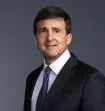Keywords: telephone consumer protection act, TCPA, automated calls, reassigned numbers, statutory damages, unsolicited calls
In a case with potentially wide-ranging implications for compliance with the Telephone Consumer Protection Act (TCPA), the US Court of Appeals for the Seventh Circuit has held that an entity that places an automated call to a reassigned number without the prior express consent of the new recipient is liable for statutory damages even if the previous subscriber with that number had consented to the automated calls.
In Soppet v. Enhanced Recovery Co., __ F.3d __, 2012 WL 1650485 (7th Cir. May 11, 2012), two consumers with overdue bills had consented to receive automated calls on their mobile phones, but then changed phone numbers. As a result, when a collection agency used a predictive dialer to attempt to contact the consumers at the provided numbers, the calls instead were received by the new subscribers to whom those mobile phone numbers had been reassigned. The recipients of the calls then filed a class action against the collection agency, seeking statutory damages under the TCPA for each call on the ground that they were unsolicited automated calls. The collection agency unsuccessfully sought summary judgment on the ground that the intended recipients of the calls had consented to receiving automated calls.
On appeal, the Seventh Circuit affirmed the district court's ruling that the consent of the intended targets of automated calls did not shield the collection agency from liability under the TCPA to the actual recipients of the calls. The Seventh Circuit reasoned that its holding follows from the language of the TCPA, which consistently uses the phrase "called party" to refer to the actual rather than the intended recipient of the call.
The Seventh Circuit's decision in Soppet is of enormous significance to companies subject to the TCPA, especially to companies that use predictive dialers or other automated-call systems to contact consumers. Under Soppet, companies must ensure that the actual recipients of automated calls have consented to receiving them, and take steps to update their records when telephone numbers have been reassigned to new subscribers. For example, the Seventh Circuit noted that callers could avoid liability by doing a "reverse lookup to identify the current subscriber" or by "hav[ing] a person make the first call" to verify that the number is
Learn more about our Consumer Litigation & Class Actions, Government Relations and Privacy & Security practices.
Visit us at mayerbrown.com
Mayer Brown is a global legal services provider comprising legal practices that are separate entities (the "Mayer Brown Practices"). The Mayer Brown Practices are: Mayer Brown LLP and Mayer Brown Europe – Brussels LLP, both limited liability partnerships established in Illinois USA; Mayer Brown International LLP, a limited liability partnership incorporated in England and Wales (authorized and regulated by the Solicitors Regulation Authority and registered in England and Wales number OC 303359); Mayer Brown, a SELAS established in France; Mayer Brown JSM, a Hong Kong partnership and its associated entities in Asia; and Tauil & Chequer Advogados, a Brazilian law partnership with which Mayer Brown is associated. "Mayer Brown" and the Mayer Brown logo are the trademarks of the Mayer Brown Practices in their respective jurisdictions.
© Copyright 2012. The Mayer Brown Practices. All rights reserved.
This Mayer Brown article provides information and comments on legal issues and developments of interest. The foregoing is not a comprehensive treatment of the subject matter covered and is not intended to provide legal advice. Readers should seek specific legal advice before taking any action with respect to the matters discussed herein.


